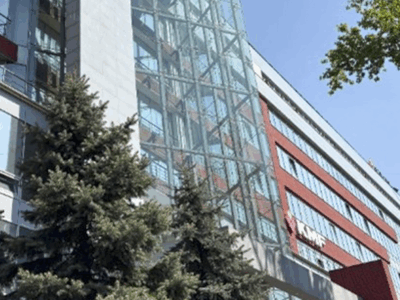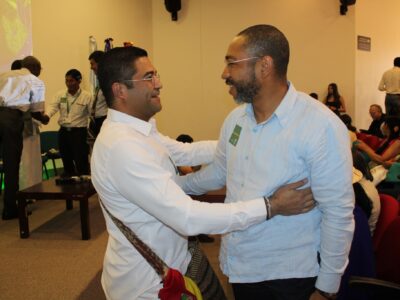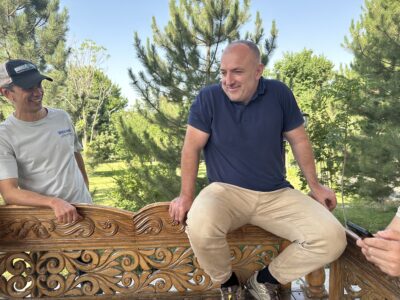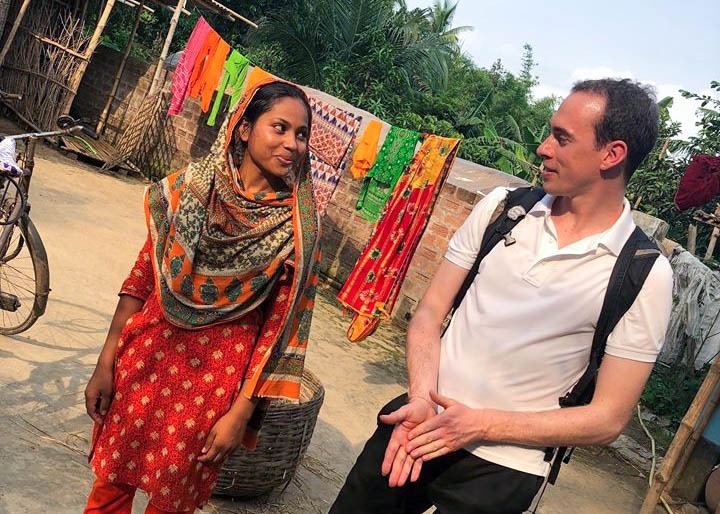
Near the end my second year as a dual master’s degree candidate at Tufts University, I noticed an opportunity to volunteer with ACDI/VOCA as a market systems development researcher in Bangladesh. As an advocate of volunteerism and a returned Peace Corps volunteer, I jumped at the chance. Not only was volunteering with ACDI/VOCA’s Service Learning Corps another chance to offer my service to the global community, but also the perfect opportunity to apply my experience and education in analysis, design, monitoring, evaluation, and learning (ADMEL) before completing my last year at Tufts.
My first week as a volunteer was fast-paced and exciting. When I first arrived, I met with Tim Russell, chief of party of the Feed the Future Bangladesh Rice and Diversified Crops (RDC) Activity, funded by USAID, to talk about how ACDI/VOCA is leveraging the private sector to improve livelihoods. The RDC Activity uses a market systems approach to agricultural development, incentivizing the private sector to offer better goods and services to rural farming households.
We started work on Sunday, with Friday being the day of prayer in Islam and the start of the weekend in Bangladesh. I met the monitoring, evaluation, and learning (MEL) team, which works side-by-side with the market systems analysts, who link to the private sector. To me, this was a refreshing sign that data informs decision making and drives the project’s performance. The head of the MEL team, Bilash Mitra, who we referred to as Bilash-da (“da” being a suffix used to denote respect and closeness), assigned me to review proposals for a local research firm tasked with collecting data on project achievements — a daunting task considering the project plans to reach 500,000 farmers in 20 districts. In the process, the project team also plans to build the research capacity of the firm they select.
Just days after arriving, I visited the project’s field office in the Jessore District, in southwestern Bangladesh, where ACDI/VOCA organized a workshop to connect point of sale (POS) technology providers with local agricultural input dealers. POS technology is what makes the checkout counter work at many stores. But many rural store owners in Bangladesh still do everything by hand, handling sales and managing inventory with written ledgers. With POS technology, like barcodes, scanners, and computers, they can track inventory, sales, and customers through a directory and provide better service by notifying farmers of new products and information. Representatives from POS technology companies traveled from Dhaka, the country’s capital, to pitch their services to rural farm store managers.
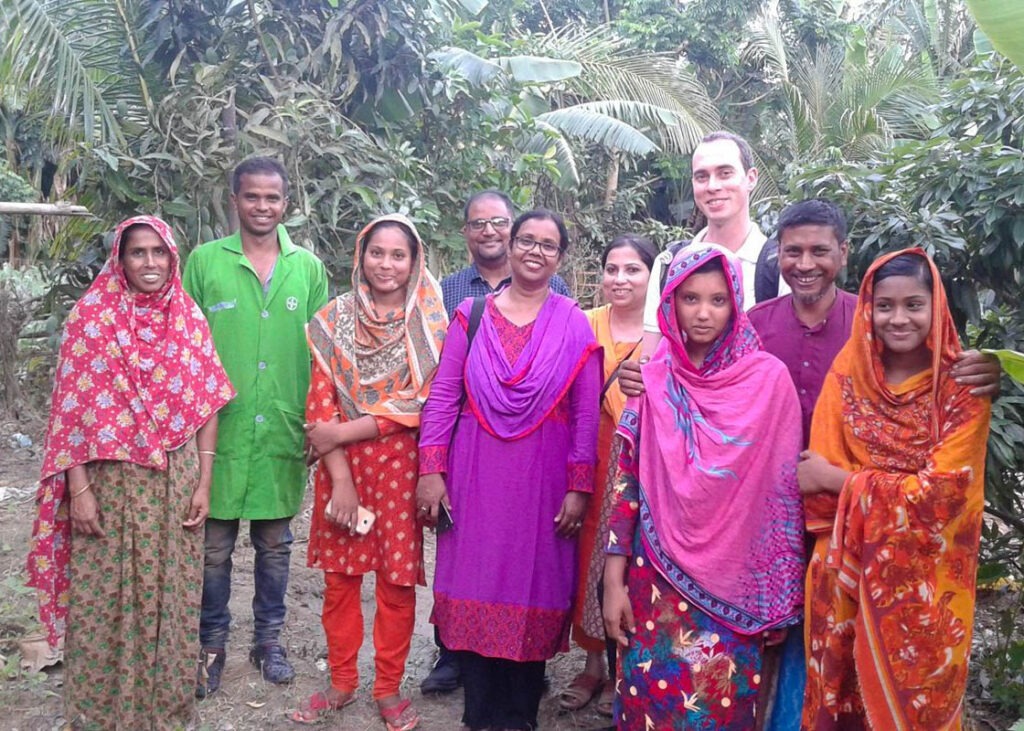 A crop clinician waits for farmers at the Bayer Crop Clinic in Jessore.
A crop clinician waits for farmers at the Bayer Crop Clinic in Jessore.
I spoke to one representative who had spent several years working in my home state of New Jersey, so his English was excellent. He was excited to be a part of this initiative, but thought we could do more. He talked about other creative interventions in the agriculture value chain that he hoped to work on with ACDI/VOCA’s support. His excitement and determination was inspiring. The RDC Activity seems to be inspiring private market actors to design their own new and creative market interventions.
After the workshop, AKM Ferdous, the field office manager, showed me his office, where he had displayed more than 30 rice varieties that he has collected over the years of his work. Among them was the famous Banglamati rice variety, which he helped spread throughout the country.
Later we visited a crop clinic run by Bayer Crop Science outside of Jessore. The clinic operates much like a health clinic, except the clinicians diagnose plants instead of people. Farmers bring samples of their damaged crops to get advice from crop clinicians. One such clinician was a driven young man whose favorite part of his job was seeing the “relief and smile on farmers’ faces” when he solved their crop problems. Farmers always worry about something, whether its pests, diseases, weather, or commodity prices. I know from experience, as a farmer and agricultural extension agent, how much services like this can do — not only to improve crop yields, but also to alleviate farmers’ concerns.
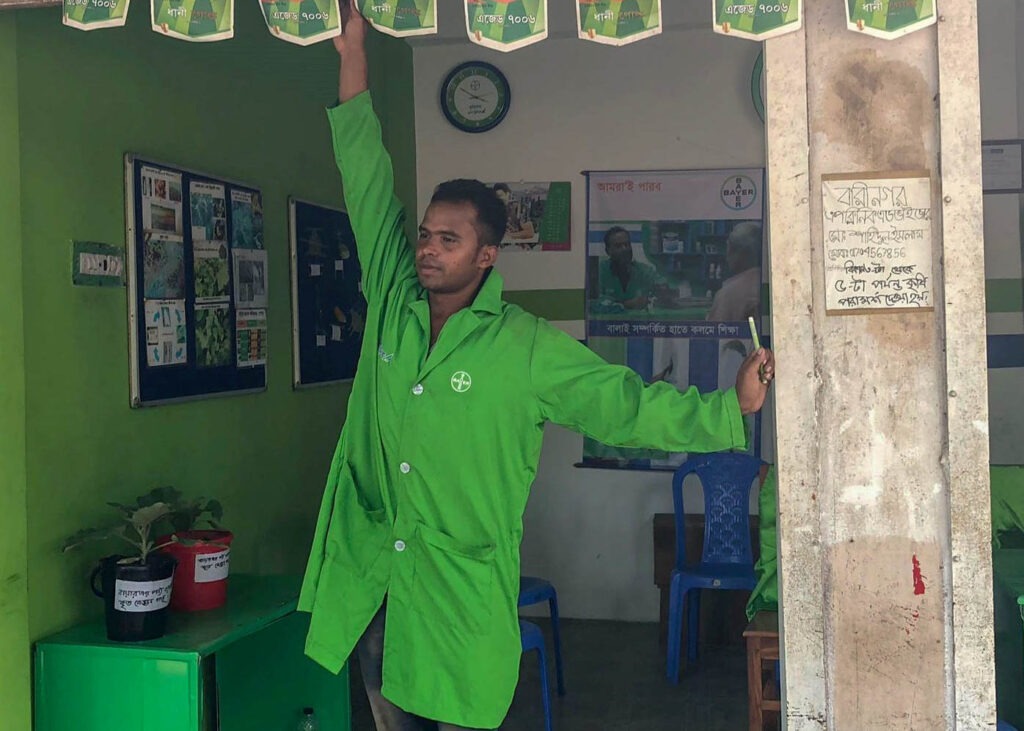
Touring the ambassador farmer and her family’s homestead garden in Jessore with a Bayer Crop Science clinician and ACDI/VOCA staff.
The crop clinician took us to visit one of the 40 ambassador farmers he works with who coordinate with other farmers in their communities. She was a woman with four daughters who grew fruits and other crops on her homestead garden and rice, taro, and more in her fields. The best moment was when the she, the crop clinician, and ACDI/VOCA staff couldn’t resist getting into a lively discussion about what was wrong with a gourd we passed.
It was an exciting kickoff to my volunteer assignment with ACDI/VOCA, and I am looking forward to working with the team for the rest of the summer.
Comments
